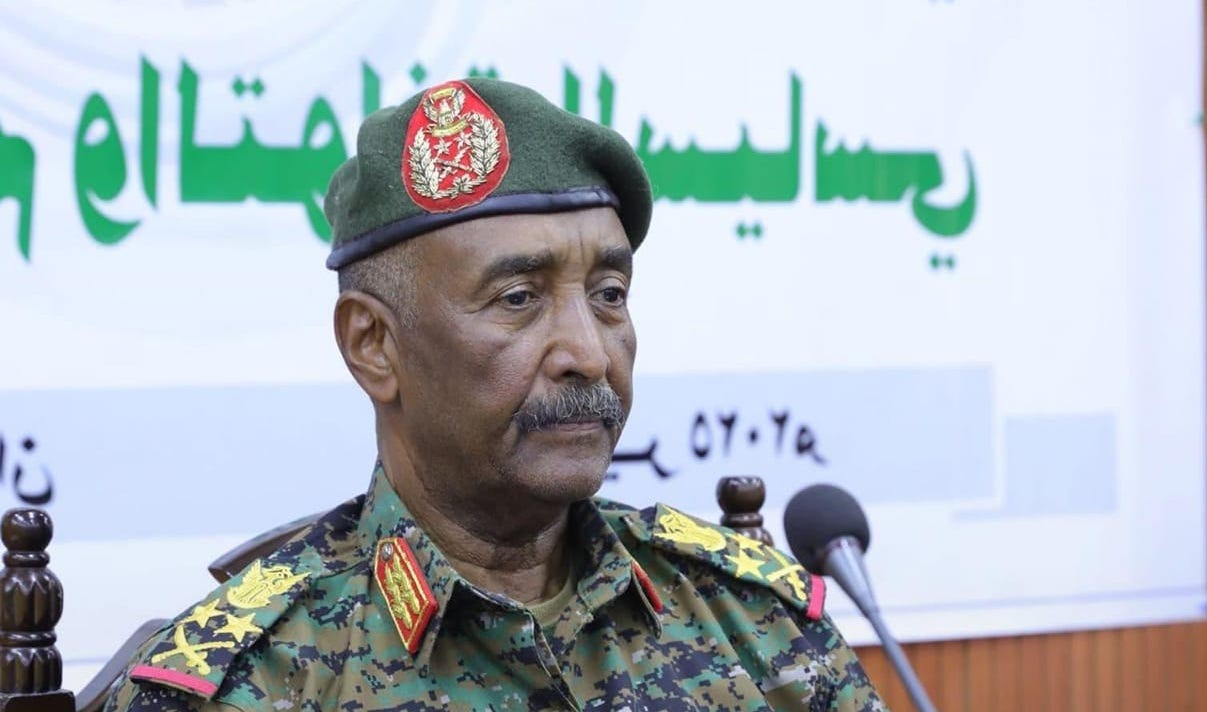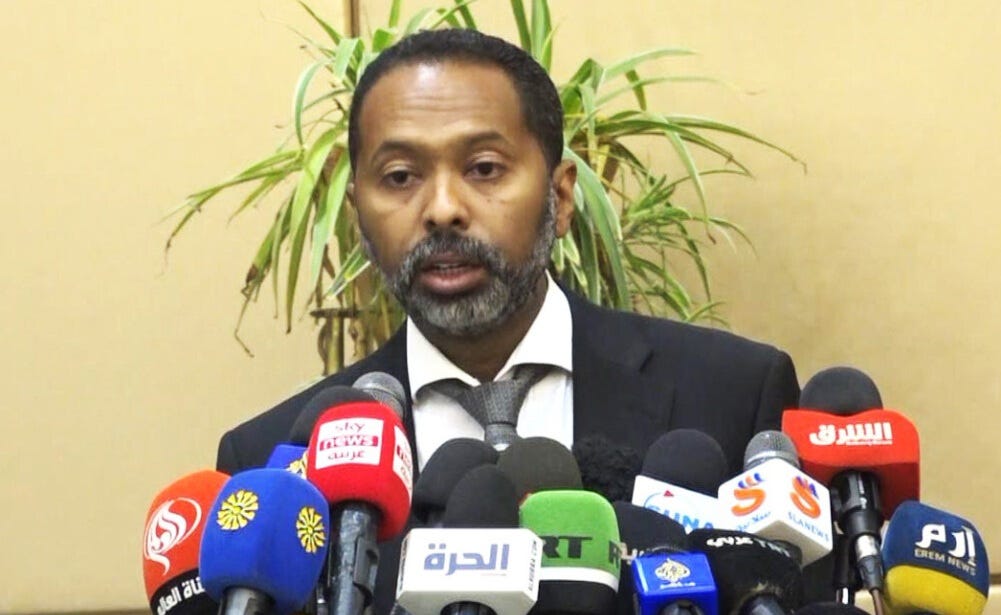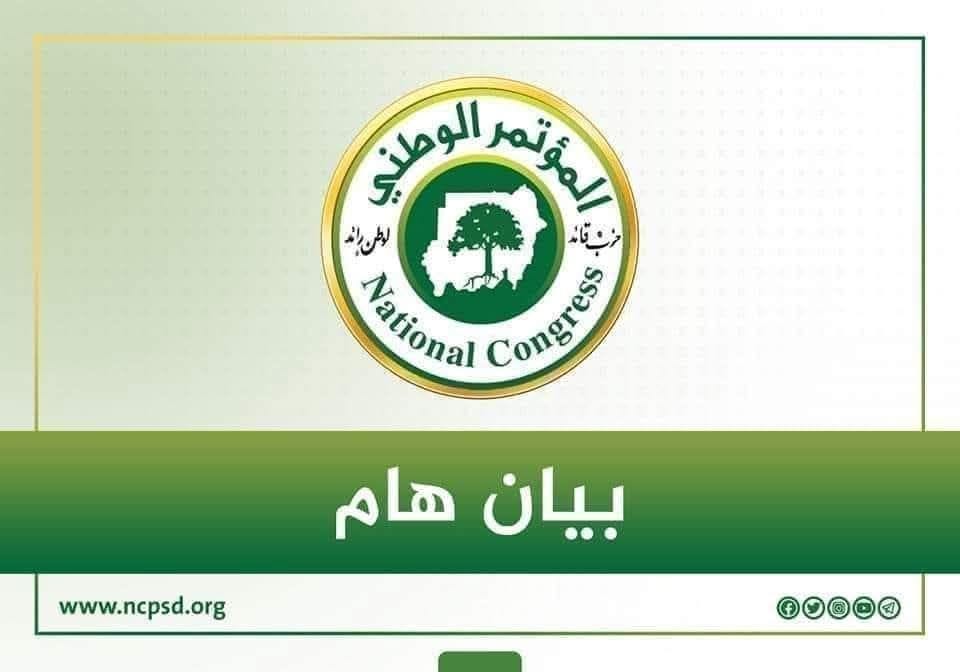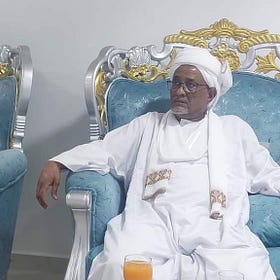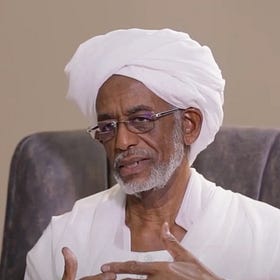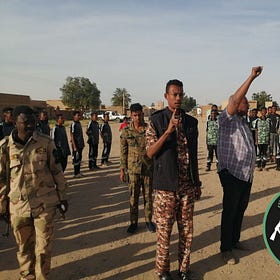Sudan army chief attacks Islamists, civilian opposition
Al-Burhan tells Islamists to stop claiming credit for military victories
Sudan’s military chief and leader of the Transitional Sovereign Council, General Abdelfattah Al-Burhan, on Saturday launched a scathing attack on the Coordination of Civil Democratic Forces, the country’s largest anti-war civilian bloc also known as Taqaddum, and on Islamist factions aligned with the former regime, accusing them of undermining the military’s efforts to restore stability.
His criticism of Taqaddum is not unprecedented, but his attack on Islamists was more rare and elicited widespread surprise. Al-Burhan and the other top leaders of Sudan’s ruling junta were all senior officers during the regime of Omar al-Bashir, who was ousted in 2019 along with the Islamist ruling party, the National Congress (NCP).
Since the coup led by Al-Burhan in 2021, the military government of Sudan has reinstated many of the practices and policies of the old regime of Al-Bashir, but has not formally restored to power the National Congress or any other Islamist party.
Speaking at a gathering of pro-army political groups in Port Sudan, Burhan dismissed Taqaddum, the civilian bloc led by former Prime Minister Abdalla Hamdok, as a “deceptive entity” that seeks to weaken the Sudanese Armed Forces (SAF) under the pretext of advocating for democracy. He accused the coalition of aligning with the Rapid Support Forces (RSF) and foreign actors to dictate the country’s political future.
“Anyone who carries a weapon under the banner of a political or regional entity will not be accepted. We reject those whose only concern is power and positions. I also say to those who supported destruction, you have no chance to return. You destroyed Sudan, supported its enemies, and stood by those who killed Sudanese civilians. You are no different from those who take up arms against Sudan.”
This alluded to the RSF’s relationship with the United Arab Emirates, and to Taqaddum’s alleged alignment with the RSF, which Taqaddum itself denies, asserting its neutrality. However, Al-Burhan went on to say that he would “forgive” individuals who belonged to the paramilitary Rapid Support Forces (RSF) in the ongoing civil war, provided they sever ties with the paramilitary group, and members of the anti-war political bloc Taqaddum (FFC), if they abandon the group and join the war effort.
“Even the rebels – if they lay down their weapons and return to the Sudanese fold, we welcome them. The Forces for Freedom and Change – if they abandon their destructive stance and align with the Sudanese state and its institutions, we have no issue with them. But as long as anyone stands against Sudan and its institutions, they are our enemy, and we will fight them just as we fight armed rebels. These people claim to be working for peace and democracy, but in reality, they conspire against the army and the people of Sudan. They sit in air-conditioned rooms and talk about political settlements while our soldiers and civilians are being slaughtered,” he said.
Message to Islamists: ‘Stop political maneuvers now’
Al Burhan also directed harsh criticism at Islamist factions linked to the former regime of Omar al-Bashir, accusing them of exploiting the war for their political comeback. He claimed that elements of the ousted regime were attempting to infiltrate the army and manipulate the conflict for their own benefit.
“We also recognize that there are many political actors maneuvering for positions, particularly the National Congress Party. We send them a clear message: if you are truly patriotic and care about Sudan, stop political maneuvers now. Withdraw now. We will not give you another opportunity to return to power at the expense of Sudanese lives. There will be no difference between you and the Forces for Freedom and Change or any other faction.”
However, Al-Burhan went on to suggest that the former ruling party, the NCP, could compete in elections after the war is over—an offer that would have been unthinkable before the military leader took power in a coup in 2021, given that the transitional government before him had dissolved and banned the NCP.
“The people fighting now are Sudanese patriots [the Sudanese military, which characterizes itself as apolitical], and none of them seek personal gains. The National Congress Party and others should organize themselves for elections later, but at this stage, no one should claim authority or impose themselves,” he stated.
The Islamists maintain significant influence within the Sudanese army through various militias, including Al-Baraa Bin Malik, a sanctioned but unofficial paramilitary group that has gained prominence in the ongoing war. This Islamist armed group has sophisticated military and media and political organs, and frequently claims responsibility for SAF’s advances against the RSF.
Al-Burhan alluded to this dynamic in his speech, indirectly acknowledging their role while specifically calling out hardline Islamist cleric Sheikh Abdel Hai Yousif:
“We have also seen political groups attempting to co-opt some fighters. We reject any political affiliation for those who are now fighting. These fighters are Sudanese, and even armed units have been warned against being politically exploited. Anyone who carries a weapon under the banner of a political or regional entity will not be accepted. The Sudanese armed forces and those who fight with them are defending their homeland. This battle, as long as the Sudanese people stand behind it, will lead to the eradication of these aggressors. Their falsehood will collapse, for falsehood is ultimately doomed to perish.”
“We are aware that in political and national matters, it is impossible to please everyone. Our primary goal is to please God. We are not concerned with pleasing individuals like [cleric] Abdel Hai or anyone else. We move forward with our principles,” he stated.
The military chief further announced that SAF would “forgive” Sudanese citizens who had previously supported the RSF, provided they renounce their allegiance to the paramilitary group and pledge loyalty to the army. He framed this as an opportunity for “misled individuals” to return to the national fold.
“Political work is well-known to everyone, as are the contradictions that arise within it. The door remains open for anyone who takes a national stance at any time. Anyone who chooses to reconsider their position is welcome.”
“Anyone who distances themselves from the aggressors—those who attack Sudan and kill its people—who raises their hand from them and speaks the truth, we welcome them at any time. We know that some of our people were tricked or coerced into supporting the RSF, but those who persist in treason will be treated as enemies,” he stated.
Civilian opposition leader responds to criticisms
Al-Burhan’s remarks were widely seen as an attempt to implicate civilian leaders in the ongoing war and were met with strong criticism from opposition politicians, including Taqaddum, which dismissed his accusations as baseless and inflammatory. Key members of the coalition accused the army chief of scapegoating civilian actors to deflect from SAF’s military setbacks and the worsening humanitarian crisis.
Khalid Omar Yousif, a prominent and vocal member of Taqaddum, dismissed any claims of his group’s responsibility, instead highlighting the achievements made during the brief tenure of Prime Minister Abdalla Hamdok. He emphasized that these accomplishments were cut short by the October 2021 military coup orchestrated by Al-Burhan and RSF leader Mohamed Hamdan Dagalo.
“What is ironic about the discussions that followed Al-Burhan’s speech is the mere attempt to compare or balance between the National Congress and its Islamic movement on the one hand, and the Forces for Freedom and Change and Taqaddum on the other. This is a comparison that cannot be made in any rational context. I noticed the former regime’s members rushing to make this ridiculous comparison, which is understandable in light of the deep wound left in their souls by the short experience of freedom and change during the two years of the abortive transition.”
Writing on X, formerly Twitter, he continued,
“Freedom and Change entered clean and exited clean; its hands were not stained with blood, and it was not involved in corruption. In just two years, the transitional government achieved what the [Islamists] government failed to do for thirty years. The transitional government inherited a war-torn country, but it succeeded in completely stopping them in Darfur, the Nuba Mountains, and the Blue Nile.”
“It found an isolated country besieged by terrorism and sanctions lists, so it pulled Sudan out of that isolation and returned it to its natural place, where nations celebrated it in international forums, and it was taken as a model to be followed,” he wrote on X, formerly Twitter.
Khalid was referring to the 2019-2021 transitional period, during which the Forces of Freedom of Change played a prominent role, leading a government that shared power with military leaders as part of an envisioned transition to full civilian rule.
Arman: ‘Decisive military victory is unattainable’
Yasser Arman, another prominent leader within Taqaddum and head of an SPLM-North faction, reiterated civilian forces’ calls for an immediate ceasefire and renewed negotiations to end the war, arguing that a political solution remains the only viable path forward and that no military victory has ever been achieved in Sudan’s wars.
“From a strictly military perspective, based on our past experiences and current information, I do not subscribe to the belief - widely circulated on social media - that recent battles between the army and the Rapid Support Forces (RSF) were merely agreed withdrawals between the two parties to the conflict. These were real battles that claimed many lives, both civilian and military.”
“Initially, the RSF made significant advances through intense combat, then the army gained ground with real victories in battles like Omdurman and Sennar. The army, despite failing in its primary duty of protecting civilians and the state, managed to maintain control over key strategic military positions of command and control, particularly in Khartoum, with its headquarters remaining a central symbol of its command. It successfully extracted its commander and preserved its leadership structure across its various units.”
“In regions where it formed alliances with local tribes and forces, the army-maintained control over its garrisons, such as in Babanusa, Dilling, El Fasher, and El Obeid. However, none of this constitutes absolute victory for either side. Regardless of the army’s recent advances, they should serve as a steppingstone toward a peaceful resolution - not an expectation of total victory.”
“Similarly, no matter how much the RSF tries to regain momentum, achieving a decisive military victory is unattainable. Both sides must shift their strategies toward a negotiated settlement, considering the lessons of past conflicts, the current balance of power, and both internal and external alliances,” he wrote on Tumblr.
NCP reaffirms support for military
The National Congress Party (NCP) quickly rejected Al-Burhan’s statements, asserting its right to return to political life once the war concludes. However, the party also reaffirmed its support for the military despite Al-Burhan’s criticisms.
In a statement, the NCP insisted that no one in Sudan has the authority to ban it as a political organization and emphasized that its leadership had voluntarily stepped down in April 2019 to avoid bloodshed, despite having numerous options to retain power. It argued that the accusations of clinging to power were contradicted by its historical decision to prioritize national stability over violent resistance.
The party suggested that Al-Burhan’s remarks misrepresented its role and decisions during Sudan’s 2019-2021 political transitions. The statement defended the NCP’s conduct following its removal from power, highlighting that its leaders endured imprisonment, property confiscation, and other forms of repression under the transitional government. Despite this, the party claimed to have maintained a stance of peaceful opposition and rejected any recourse to violence.
The NCP blamed the post-2019 leadership for mishandling governance, particularly in allowing the RSF to expand unchecked, which it argued was a key factor in the outbreak of the current war. It reiterated its support for the SAF, stating that its members had contributed significantly to the war effort against the RSF.
“The accusation that the Sudanese National Congress Party (wants to rule or return to rule over the remains of the Sudanese) is contradicted by recent history of the change in April 2019 when the party leadership decided to peacefully step down from power. At the time, the party leadership had dozens of options that would keep it in power, but they would lead to the shedding of the blood of the daughters and sons of the Sudanese people who were deceived at the time, knowing that the blood that would have been shed if the National Congress leadership had adhered to legitimacy is not worth 1% of the blood that was shed after the April 2023 war. This is the biggest answer to the talk of the Commander-in-Chief who thought that the National Congress leaders were clinging to power in exchange for the blood of the Sudanese people.
“The leadership of the National Congress, despite the fact that its leaders were subjected to torture and imprisonment for years in the prisons of the hybrid military-civilian government, and the confiscation of property and the most heinous types of injustice, its position was clear: respecting the sovereignty of the national state and peaceful opposition and rejecting violence, because it knows from its long experience in managing the country what it means to be dragged into chaos.
“Despite all this injustice and oppression that the leaders of the National Congress found from the hybrid government when the war broke out due to the wrong practices in managing the post-change period and allowing the rebel Rapid Support Forces to expand - after they were auxiliary forces that did not exceed twenty thousand - when the war broke out, the National Congress Party announced its position explicitly by standing with the national army and the party circulated to its million-strong membership in the country the necessity of confronting the war plan aimed at swallowing up the Sudanese state, so the sons and daughters of the party supported the mobilization camps with tens of thousands of young people who defend the homeland without favor or harm.
“We highly value the positions of the Commander-in-Chief of the Armed Forces and his struggle in the ongoing war, and we appreciate his leadership of the Armed Forces, and we hold him above attacking the National Congress at every opportunity, in order to get closer to and curry favor with weak, crumbling forces that have nothing in their arsenal except certificates of loyalty to the forces of evil that are fighting the homeland, and from whom he will find nothing but treachery and betrayal.
“The leadership of the National Congress believes that the duty of the time is (the battle of dignity) and it is engaged with all its resources in the victory of the homeland and believes that it is too early to pay attention to disagreement and discord and to search for political gains that will inevitably harm the battle. God Almighty said: (And do not dispute and [thus] lose courage and your strength departs, and be patient. Indeed, God is with the patient.) God Almighty is true.
“Despite this, we in the National Congress support the Commander-in-Chief of the Armed Forces in his symbolic and honorary capacity, and we see that there is no way to achieve a decisive victory over this project except by rallying around the Sudanese Armed Forces with its known administrative structure and arrangements.
“And as soon as the war ends, we announce to the Commander-in-Chief, the Sudanese national and non-national political forces, the Sudanese army, all the sons and daughters of Sudan, and the international community that no one will confiscate our will, for we are a party whose roots are deeply rooted in Sudanese society. As long as you are all talking about a transitional period that ends with elections, then welcome to the ballot boxes. (And then there will be a discussion about each incident.)
Related News Coverage:
Islamist leader's return sparks fears of NCP resurgence in Sudan
The leader of Sudan's dissolved National Congress Party (NCP), Ibrahim Mahmoud Hamid, has returned to Port Sudan after spending over two years in Türkiye, a move that has sparked outrage among pro-democracy and anti-war opposition parties.
Resurgent Islamists stoke fears of ‘foreign conspiracy’ against Sudan
Political party activity inside Sudan has all but ceased, due to wartime conditions, military rule, and repression of opposition parties that step out of line. But the Islamist parties are a key exception, enjoying a major revival.
Saudi authorities detain and deport Sudanese militant leader
Saudi Arabian authorities yesterday deported a Sudanese militant leader after holding him in detention for more than a week for unspecified reasons.
Saudi authorities detain and deport Sudanese militant leader
Saudi Arabian authorities yesterday deported a Sudanese militant leader after holding him in detention for more than a week for unspecified reasons.
Sudan reinstates sweeping powers for intelligence service
Sudan's military-led government has approved a new law granting the intelligence service broad powers and immunities, raising concerns about a return to repressive tactics employed under the ousted Islamist regime of Omar al-Bashir. Al-Bashir was ousted by a popular uprising in April 2019 after 30 years in power.
False flag attack on Islamist brigade
An explosion ripped through a dinner organized by the Al-Baraa Ibn Malik Brigade in Atbara, River Nile State, unleashing a wave of fear and fury throughout northern and eastern Sudan, directed both at the Rapid Support Forces (RSF), who were blamed for the attack, and at the military leadership—for allowing it to happen.


